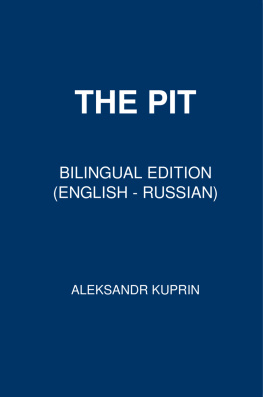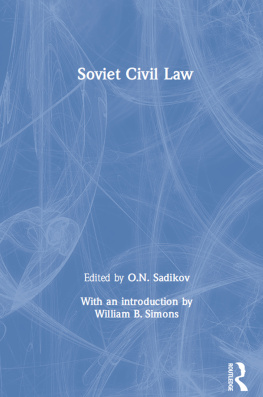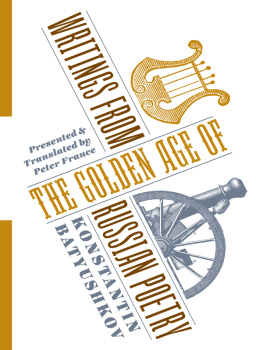INTRODUCTION
Any editor of Slav folk-tales starts with great advantages. Russia is a country where artistic development began very late; where popular lore was conserved with little alteration owing to the immensities of the country, the primitiveness of the people, and the punctiliousness of the compilers.
The principal source for Russian folk-tales is the great collection of Afanev, a coeval of Rybnikov, Kiryevski, Sakharov, Bezsonov, and others who all from about 1850 to 1870 laboriously took down from the lips of the peasants of all parts of Russia what they could of the endless store of traditional song, ballad, and folk-tale. These great collectors were actuated only by the desire for accuracy; they appended laboriously erudite notes; but they were not literary men and did not sophisticate, or improve on their material.
But, before venturing on a brief account of the tales, something must be premised as to the position occupied by folk-tales in the cultural development of a people. In Pagan times, there always existed a double religion, the ceremonial worship of the gods of nature and the tribal deities,a realm of thought in which all current philosophy and idealism entered into a set form that symbolized the State,and also local cults and superstitions, the adoration of the spirits of streams, wells, hills, etc. To all Aryan peoples, Nature has always been alive, but never universalized, or romanticized, as in modern days; wherever you were, the brook, the wind, the knoll, the stream were all inhabited by agencies, which could be propitiated, cajoled, threatened, but, under all conditions, were personal forces, who could not be disregarded.
When Christianity transformed the face of the world, it necessarily left much below the surface unaffected. The great national divinities were proscribed and submerged; some of their features reappearing in the legendary feats of the saints. The local cults continued, with this difference, that they were now condemned by the Church and became clandestine magic; or else they were adopted by the Church, and the rites and sanctuaries transferred. The memory of them subsisted; the fear of these local gods degenerated into superstition; the magic of the folk-tales becomes half-fantastic, half-conventional, belief in which is surreptitious, usual, and optional. At this stage of disorganization of local custom, folk-tales arise, and into them, transmitted as they are orally and under the ban of the Church, contaminations of all sorts creep, such as mistaken etymologies, faint memories of real history, reminiscences of lost folk-songs, Christian legend and morals, etc.
The Russian people have handed down three categories of records. First of all, the Chronicles, which are very full, very accurate, and, within the limits of the temporary concepts of possibility and science, absolutely true. Secondly, the ballads or bylny; epic songs in an ancient metre, narrating historical episodes as they occur; and also comprising a cycle of heroic romance, comparable with the chansons de geste of Charlemagne, the cycles of Finn and Cuchlain of the Irish, and possibly with the little minor epics out of which it is supposed that some supreme Greek genius built up the artistic epics of the Iliad and the Odyssey. These bylny may be ranked as fiction: i.e. as facts of real life (as then understood), applied to non-existent, unvouched, or legendary individuals. They are not bare records of fact, like the Chronicles; imagination enters into their scope; non-human, miraculous incidents are allowable; their content is not a matter for faith or factual record; they may be called historical fiction, which, broadly taken, corresponded to actual events, and typified the national strivings and ideals. The traditional ceremonial songs, magical incantations and popular melodies are of the same date and in the same style.
Thirdly, the folk-tales. In their matter, these differ little, if at all, from the common Aryan stock. In their treatment, there are well-marked divergencies. They are, in the first place, characterized by the so-called realism that tinges all Russian literature; a better word would be factualism, as realism is associated with the anti-romanticism that accentuates material facts and seeks to obliterate moral factors.
This attitude of mind is rather like that of a careful observer, who has become callous, because he is helplessan attitude of those who serve and stand and wait.
From the earliest Chronicles to the most modern fiction, this factualism characterizes Russian work. It has reacted on the Folk-tales in several ways; all the more observable as we have them fresh and ungarnished, as the tellers told them.
The stories are not, like the German Mrchen, neatly rounded off into consequential and purposive stories. The incidents follow almost haphazard; and at the end, the persons mentioned at the beginning may be forgotten; the stories are often almost as casual as real life.
The stories relate experiences in succession, attempt no judgment, do not even affirm their own credibility. Things simply happen; our exertions may sometimes be some good; we can only be quietly resigned. But, unlike the Arabian Nights, there is no positive fatalism; for that would imply a judgment; a warping of facts to suit a theory.
Equally, there is none of the artistic grace of Greek legend, nor the exuberance of Celtic fantasy; both of these are departures from the crude, unilluded, unexpectant observation.
This unconsciously involves a perfect art with regard to detail; so much is told as a man would remember of an experience; there is no striving after impressionism, nor meticulous detail.
The prevailing tone is sadness; but there is no absence of humour; yet fun merely happens, and is inherent; there is no broad, boisterous fun.
In them, unlike other Aryan folk-tales, there are no fairies, nor giants, nor gnomes, nor personifications of nature. As in his Pagan myths, the Slav never advanced beyond inchoate conceptions of Nature, he neither philosophized like the Hindu, nor created types of pure grace like the Greek, nor beautiful fancies, like the Celt. Where the river-gods [vodyany], or the wood-sprites [li], have human form, it is to a certain extent because they have been contaminated with the Christian Devil.
To sum up, these undiluted products of the Russian people are a faithful mirroring of life, as it appeared, casual; for the most part unfortunate, and inscrutable.
There are some very frequent supernatural beings. The Witch who lives in the forest, rides the winds in a mortar, devours human flesh, lives in a hut on cocks legs, is one of the commonest. The great baleful magician is Koshchy the Deathless, whose soul, in some stories, is contained in an egg far away, fearsomely guarded. Historically, his ancestry is the dread Tatar, in which figure all the previous Turanian tribes that overran medieval Russia have been confounded.





